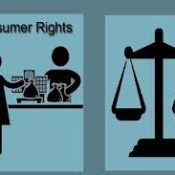
Consumer Protection Law: Safeguarding Consumer Rights
Consumer Protection Law: Safeguarding Consumer Rights
In today’s marketplace, consumers often encounter challenges such as defective products, misleading advertisements, poor services, or unfair business practices. Consumer Protection Law provides legal safeguards to prevent exploitation and ensures that consumers have access to remedies. Understanding this law is essential for both consumers and businesses to promote a fair, transparent, and trustworthy market environment.
What is Consumer Protection Law?
Consumer Protection Law is a set of regulations designed to protect consumers from unfair practices by businesses. It ensures that consumers have access to safe goods and services while providing mechanisms for addressing grievances effectively. The law promotes transparency, accountability, and ethical business conduct.
Key purposes of Consumer Protection Law include:
Ensuring the availability of quality products and services.
Offering avenues for consumer grievance redressal.
Preventing fraud and misleading business practices.
Encouraging consumer awareness and education.
By protecting consumers, the law also helps build confidence in the market and supports economic growth.
Main Features of Consumer Protection Law
The law provides comprehensive protection and covers various aspects of consumer rights. Here are the key features:
1. Consumer Rights
The law guarantees specific rights to consumers, including:
Right to Safety: Protection against hazardous goods and services.
Right to Information: Access to correct and relevant product information.
Right to Choose: Freedom to select from a variety of products.
Right to be Heard: Opportunity to file complaints or raise concerns.
Right to Redressal: Compensation for defective goods or poor services.
Right to Consumer Education: Awareness programs to educate consumers about their rights.
2. Consumer Grievance Redressal System
The Consumer Protection Law establishes a structured framework for resolving disputes:
District Consumer Forum: Handles complaints within a certain monetary limit.
State Consumer Commission: Addresses appeals and complaints beyond district-level jurisdiction.
National Consumer Disputes Redressal Commission (NCDRC): Handles high-value claims and appeals from state commissions.
3. Protection Against Unfair Trade Practices
The law prohibits practices that deceive or harm consumers, such as:
False or misleading advertisements.
Selling defective or substandard products.
Hidden charges or unfair pricing.
Denial of warranty or guarantees promised to consumers.
4. Product Liability
Businesses are accountable under Consumer Protection Law for:
Manufacturing or supplying defective goods.
Misrepresenting product information.
Failing to honor warranties or contractual obligations.
This ensures companies maintain quality and responsibility in their offerings.
Benefits of Consumer Protection Law
The law provides multiple advantages for consumers and businesses alike:
Boosts Consumer Confidence: Assures consumers of safety and fairness.
Encourages Transparency: Promotes honesty in trade practices.
Efficient Grievance Redressal: Structured mechanisms provide timely remedies.
Promotes Ethical Practices: Deters unfair business practices and encourages accountability.
Types of Complaints Covered
Consumers can seek redressal for issues such as:
Defective Products: Items causing harm or failing to meet promised standards.
Deficiency in Services: Problems in services like healthcare, banking, telecom, and e-commerce.
Misleading Pricing: Overcharging or hidden costs.
False Advertising: Misrepresentation of product performance or benefits.
Unfair Contractual Terms: Clauses that disadvantage consumers.
How to File a Complaint
Filing a complaint under Consumer Protection Law is straightforward:
Identify the Issue: Clearly define the problem with the product or service.
Collect Evidence: Keep bills, receipts, warranties, and related documents.
Draft a Complaint: Detail the grievance, expected relief, and supporting evidence.
Submit to the Relevant Forum:
District Forum for smaller claims.
State Commission for larger claims or appeals.
NCDRC for high-value claims or appeals from State Commission.
Participate in Hearings: Provide all required documents and respond to queries.
Obtain Resolution: The forum may order replacement, refund, compensation, or corrective measures.
Consumer Protection in the Digital Era
With e-commerce and digital services, Consumer Protection Law has evolved to address:
Fraudulent online transactions and phishing scams.
Misleading product information in online marketplaces.
Digital payment issues and subscription services.
Data privacy and secure handling of consumer information.
Challenges in Enforcement
Despite its effectiveness, some challenges remain:
Limited awareness of consumer rights among the public.
Delay in resolving complaints due to procedural bottlenecks.
Difficulty enforcing decisions against multinational companies or online platforms.
Need to continuously update the law to address emerging technologies.
Conclusion
The Consumer Protection Law is a vital legal framework that ensures fairness and transparency in the marketplace. It empowers consumers to seek redressal while encouraging businesses to maintain ethical practices. Awareness and compliance with this law help build a balanced and trustworthy commercial ecosystem.
By understanding Consumer Protection Law, consumers can protect their interests, claim remedies efficiently, and contribute to a fair and accountable market.
All Categories
Recent Posts
Consumer Protection Law: Safeguarding Consumer Rights
Tags





